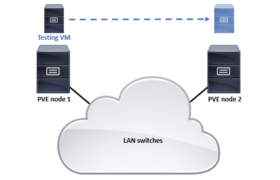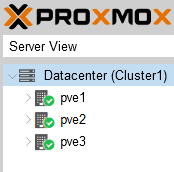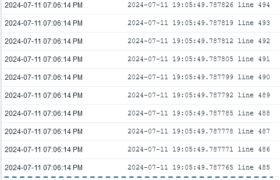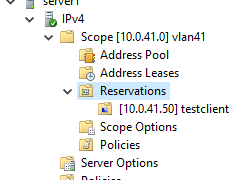The switches in Ethernet networks learn all connected hosts’ link-layer addresses (layer 2 or MAC (Media Access Control) addresses) dynamically when the hosts communicate in the network and the switches see the traffic. Based on that information the switches are then able to forward frames optimally without flooding. When you disconnect a physical host from […]
HE Dynamic DNS ACME Support for Proxmox VE
Since the Broadcom’s announcement about changing the licensing for VMware vSphere products and discarding the free Hypervisor license, there has been a massive uptake for other virtualization platforms. Also in my own systems, where I reinstalled the ESXi hosts as Proxmox Virtual Environment (PVE) nodes, and imported the existing virtual machines in the new platform. […]
Zabbix Agent Log File Monitoring Performance
Log file monitoring in Zabbix means that the Zabbix agent in active mode will periodically check if the given log file has received new content that match the configured regular expression. Matched content is sent to the Zabbix server (or proxy, if the agent is monitored by a proxy) for further processing and storage. Zabbix […]
Endianness
Zabbix 7.0 Proxy Load Balancing
One of the new features in Zabbix 7.0 LTS is proxy load balancing. As the documentation says: Proxy load balancing allows monitoring hosts by a proxy group with automated distribution of hosts between proxies and high proxy availability. If one proxy from the proxy group goes offline, its hosts will be immediately distributed among other […]
More Mocking with Pytest
In my Basic Mocking with Pytest post I showed simple cases. Now let’s do more mocking. First I’ll create the environment for my code: $ mkdir more-mocking$ cd more-mocking$ python3 -m venv venv$ . venv/bin/activate(venv)$ pip install -U pip wheel…Successfully installed pip-24.0 wheel-0.43.0(venv)$ pip install pynetbox pytest…Successfully installed certifi-2024.2.2 charset-normalizer-3.3.2 idna-3.7 iniconfig-2.0.0 packaging-23.2 pluggy-1.5.0 pynetbox-7.3.3 […]
PostgreSQL Upgrades on Debian Linux
When doing a major version upgrade on Debian Linux with PostgreSQL server installed (using Debian-provided packages), this always catches me: After the upgrade there will be two different PostgreSQL instances running, it won’t do an in-place upgrade for the database automatically. In order to get the existing database running on the newer PostgreSQL version, this […]
DHCP Reservations – Active or Inactive?
In DHCP servers you can configure IP address reservations, meaning that you statically configure the IP addresses that you want the specific DHCP clients to get. This is sometimes desirable when you know your devices and want to ensure that their DHCP-assigned IP addresses won’t change, because of, you know, reasons. (Printers may or may […]
NetBox Plugins to Present External Data
I have worked with NetBox for over five years now, and NetBox plugins feature has existed since version 2.8 in April 2020, but it was only recently that I got a need to start leveraging plugins to extend the NetBox functionalities. Most of the publicly available plugins work with Django model-based data that is saved […]
Commanding Devices with Tmux
Let’s go right away to the question: How do I enter commands on two devices at the same time? One of the possible answers is: With tmux. My usual workflow to connect to the end devices is from a Linux host that has tmux installed. The situation can look for example like this: Before being […]






